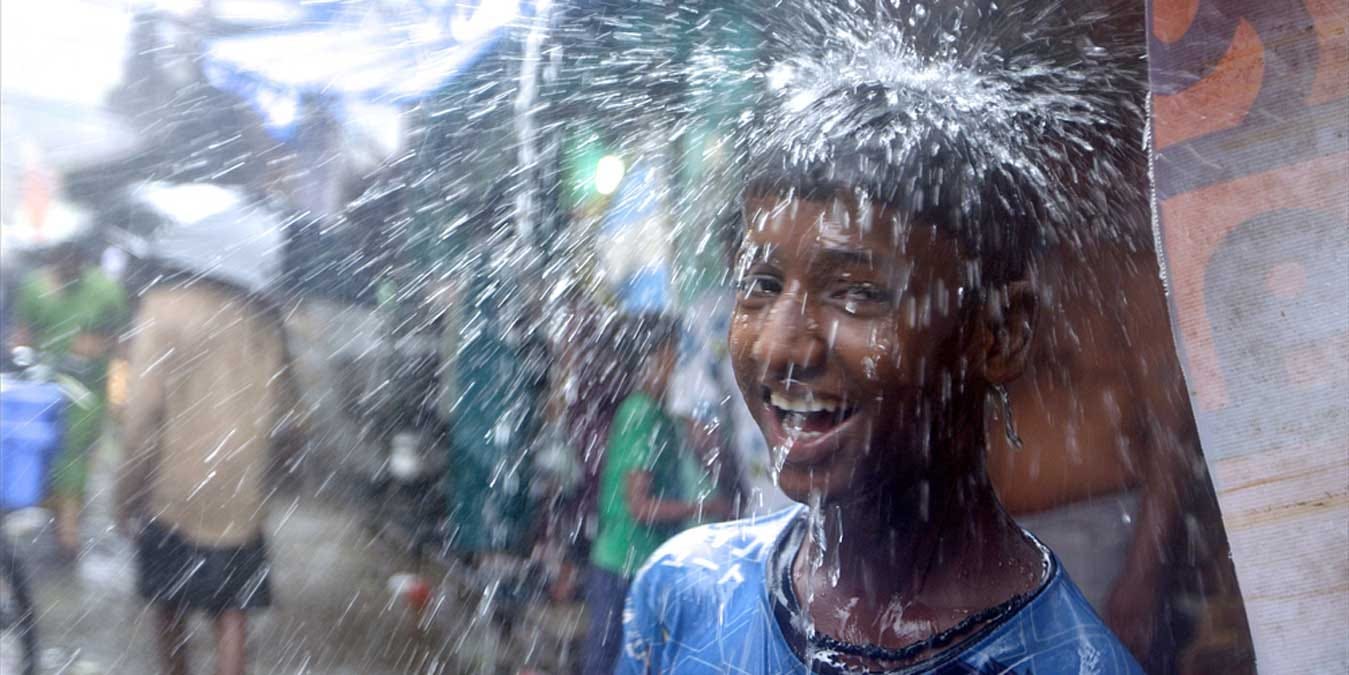The Unexpected Benefits of Mumbai Monsoon

by Rohit Chopra
As a one-time Mumbai resident now living in a city with good drainage but no seasons, I think of the monsoon with a certain ambivalence. I do miss its obvious joys: the drama of suddenly darkened skies followed by thunderclap and cloudburst; the clean cool air that follows a shower; and the rejuvenated lushness of whatever pockets of green remain in the metropolis. But it is with a far greater sense of nostalgia that I miss its lesser-known gifts to the city, rewards concealed within the apparent havoc the rains cause each year to Mumbai. While our newspapers lament the cost of the disruption of everyday life to the economy of India’s financial capital, they do not seem to recognize the intangible benefits of the floods that grind Mumbai to a standstill each year.
Promotion of Work Ethic
Every office in Mumbai has that one guy who seems to be employed for no real reason other than a real talent for organizing the annual office picnic to Murud. With an annual performance review score of between 2 and 3, this guy is routinely late to work, spends half the day on smoking breaks, and unnecessarily prolongs meetings by asking pointless questions. However, the monsoon seems to bring out the best in him. He will brave torrential downpours, flooding, and switching five forms of transport to make it to the office on the one day no one else will show up. And he will remind you of it for every other working day of the year. Said person also specializes in making to office by 8:30 am sharp on days of curfews and bandhs.
Exercise
Till date, there is no really good study of the health benefits of flooding in the monsoon, though, somewhat unfairly, there have been countless studies of all the waterborne diseases caused by stagnating water. Yet, every Mumbaikar can boast of at least one ten-kilometer walk from their office to their home, the decision sparked by the alternative of having to spend the next 14 hours in the company of your boss without any prospect of escape. Given the general loathing of exercise that pervades India’s office-going classes, this trudge in rolled-up trousers has arguably saved and prolonged many lives by radically lowering bad cholestorol by upto 20 percent in one day. If you wore jeans on the day, god help you. But you probably knocked off a little more of that LDL.
Social Equality
What Nehru and the architects of India’s independence could not achieve with their commitment to socialism, the monsoon often does. It is the one time of year when the citizens of the Republic of South Bombay can be seen grimly walking in knee-deep water, like their fellow citizens of the Republic of Everything After Worli (And Lower Parel is Not Upper Worli). In poignant scenes reminiscent of Partition documentaries, the columns heading toward and away from South Bombay snake past each other, perversely united by swirling eddies and the sloth of the BMC. The furrowed brows of the South Bombayites usually break as they hit Bandra, with Altamount Road somewhere on the horizon.
Critical and Creative Thinking
Critical and creative thinking is not appreciated enough in a city like Mumbai, mesmerized as it is by its own high-speed rail, superb infrastructure, and blazing 4G speeds. But the monsoon floods stimulate the synapses in all kinds of unexpected ways, promoting out-of-the box thinking. For example, as an extremely worrried acquaintance of mine asked me once: “Boss, what happens to people who own dogs when it floods? How do the dogs do their do?” I confessed it was a question to which I had neither devoted any time nor really wanted to. Other terrifying mental challenges involve trying to figure out which road home is likely to have the lowest probability of open manholes and what possible excuse to make to one’s mother to be able to go out to buy cigarettes in such rain.
Bonding Against a Shared Enemy
Identity, as we well know, is consolidated against the Other. Ever since Bal Thackeray publicly disagreed with Sachin Tendulkar’s statement a few years ago that Mumbai belonged to all Indians, Mumbaikars have been struggling to figure out what it is that gives them their distinct identity. Luckily, our Other is not the not-Mumbaikar but the enemy within. The annual rite of incompetence that is the BMC’s haplessness in the wake of flooding becomes a shared cry of pain and an annual rite of renewal among all those who live in the city.
The pain is made sharper and the outrage more righteous by the fact that the BMC, the richest municipality in India, does not typically even manage to spend its annual budget. Thankfully, the renaming of the BMC as the Brihanmumbai Municipal Corporation from the Bombay Municipal Corporation under the Shiv Sena several years ago did not rob it of its ineptitude. It continues to be the bond that glues Mumbaikars together, one that the monsoon rain doesn’t wash away but strengthens instead.


